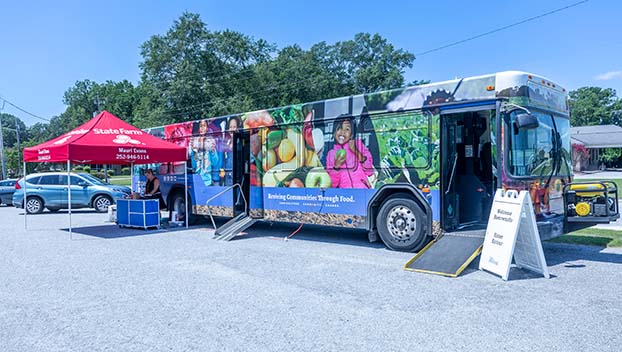NC Estuarium offers new kind of invasion
Published 8:11 pm Thursday, November 9, 2017

- HEALTHY: Lucky for this mud crab, it lives in the exhibit’s tank for healthy crabs. In the next tank over, the mud crabs were infected with a parasitic barnacle. (Caroline Hudson/Daily News)
Zombie crabs have invaded the North Carolina Estuarium in downtown Washington.
Don’t panic — the zombie apocalypse hasn’t arrived. These so-called zombie crabs are part of the “Biological Invasions” exhibit, which recently debuted at the Estuarium.
Zombie crabs are actually mud crabs whose bodies were infected by a parasitic barnacle, known scientifically as Loxothylacus panopaei. The parasite forms a sac on the crab’s abdomen, thus preventing the crab from having reproductive abilities. In many cases, this sac will break open, releasing larvae into the water and infecting the surrounding crab population.
“We call it a body-snatching parasite because it takes over from throughout the inside of the crab,” said Dr. April Blakeslee, assistant professor of biology, in an interview with East Carolina University News Services.
Blakeslee played a large role in making the N.C. Estuarium’s new exhibit a reality, according to Russ Chesson, operations and programming specialist. Blakeslee and two of her students collected mud crabs last year in the Pamlico and Neuse rivers to study the parasitic phenomenon in depth.
Other partners in the exhibit were N.C. Sea Grant, the ECU College of Arts and Sciences, ECU Division of Research, Economic Development and Engagement, ECU Biology Department, Kayla Clark with the ECU School of Art and Design, Dr. Ernest Larkin and the Outer Banks Hospital.
Besides the zombie crabs, “Biological Invasions” covers other invasive species, such as nutria, tiger shrimp, lionfish and hydrilla. The exhibit also includes two tanks — one with healthy crabs and one with infected crabs, both from the Pamlico River area, according to Chesson.
Chesson said he invited Blakeslee to speak on zombie crabs at the Estuarium about a year ago.
“A year later, we’ve got this. It’s pretty neat just to see her follow through. It’s part of a community collaborative with Sea Grant,” Chesson said. “It’s pretty awesome. I mean it doesn’t come along every day.”





